International
Hcéres intervention at the European Quality Assurance Forum (EQAF)
Published on
The Department for European and International Affairs of Hcéres and the Commission des titres d'ingénieur (CTI) took part in the 2023 edition of the European Quality Assurance Forum (EQAF), which focused on the trends and challenges of quality assurance in an internationalised world. This was an opportunity to present a paper co-authored with the French-speaking Belgian (AEQES) and Swiss (AAQ) agencies at a forum attended by nearly 450 participants from some fifty countries from 22 to 25 November 2023.
The University of Aveiro (Portugal) hosted the 2023 edition of the EQAF, which focused on the link between internationalisation and quality assurance. Two representatives from Hcéres and CTI took advantage of this opportunity to present a paper on capacity building in quality assurance through international cooperation, co-authored with experts from the two other founding agencies of the French-speaking network of quality agencies for higher education, Fraq-Sup (AEQES and AAQ). This article is based on the main lessons learned from the HAQAA2 (Harmonisation of African Higher Education, Quality Assurance Accreditation) initiative, in which four experts from the founding agencies of Fraq-Sup participated. The HAQAA initiative was launched as part of the joint strategy of the African Union and the European Union. In this context, experts from four French-speaking European agencies took part in consultancy visits and reviews to four French-speaking African counterpart agencies.
The results presented in this article are based on what these four experts learned from their mission to Africa. They draw five conclusions:
- The regional standards and guidelines, ESG in Europe and ASG-QA in Africa, although very similar, differ in their scope. The former considers institutional quality assurance through the lens of teaching and learning, while the latter takes into account the three missions of a higher education institution (education, research, societal impact);
- The missions of the African agencies visited are generally broader than those of their European counterparts (training of institutions' internal quality assurance units, evaluation of research organisations);
- Of the four African agencies studied, two include parents of students as stakeholders in the external quality assurance process (on the agency's executive bodies or on evaluation panels);
- In Africa, as in Europe, disseminating the results of external quality assurance is an important stage involving many stakeholders;
- The African agencies we met rely on international cooperation, whether bilateral or within networks, to develop their skills.
In addition to a presentation of the above-mentioned article at the EQAF, Hcéres and CTI were invited to organise a workshop as part of the pre-conference organised by ESU (European Student Union) for students. This provided an opportunity to discuss the place of students in the evaluation process, with regard to the participation of parents in Africa. The workshop also provided an opportunity to return to the importance of international cooperation in quality assurance for capacity building





